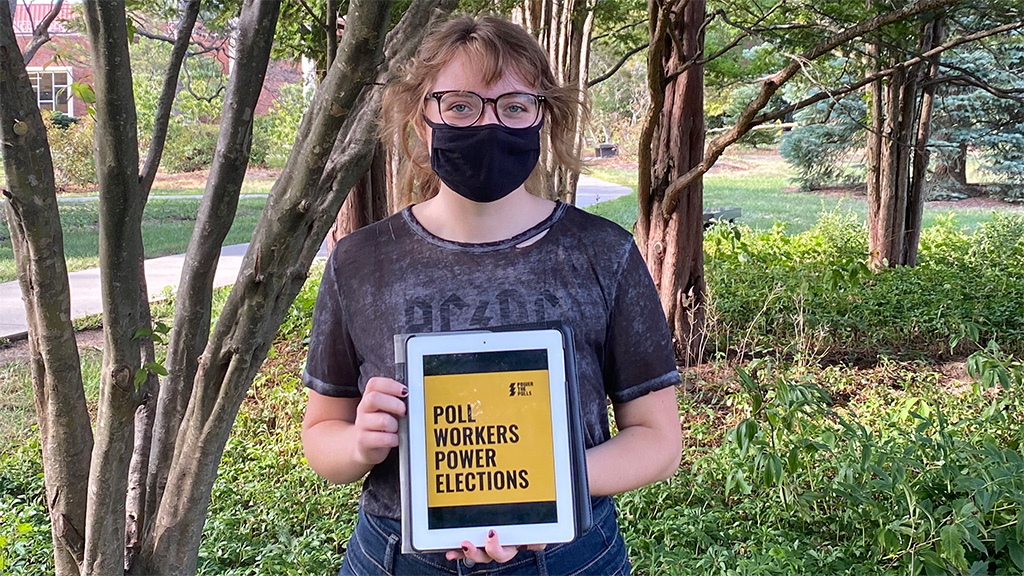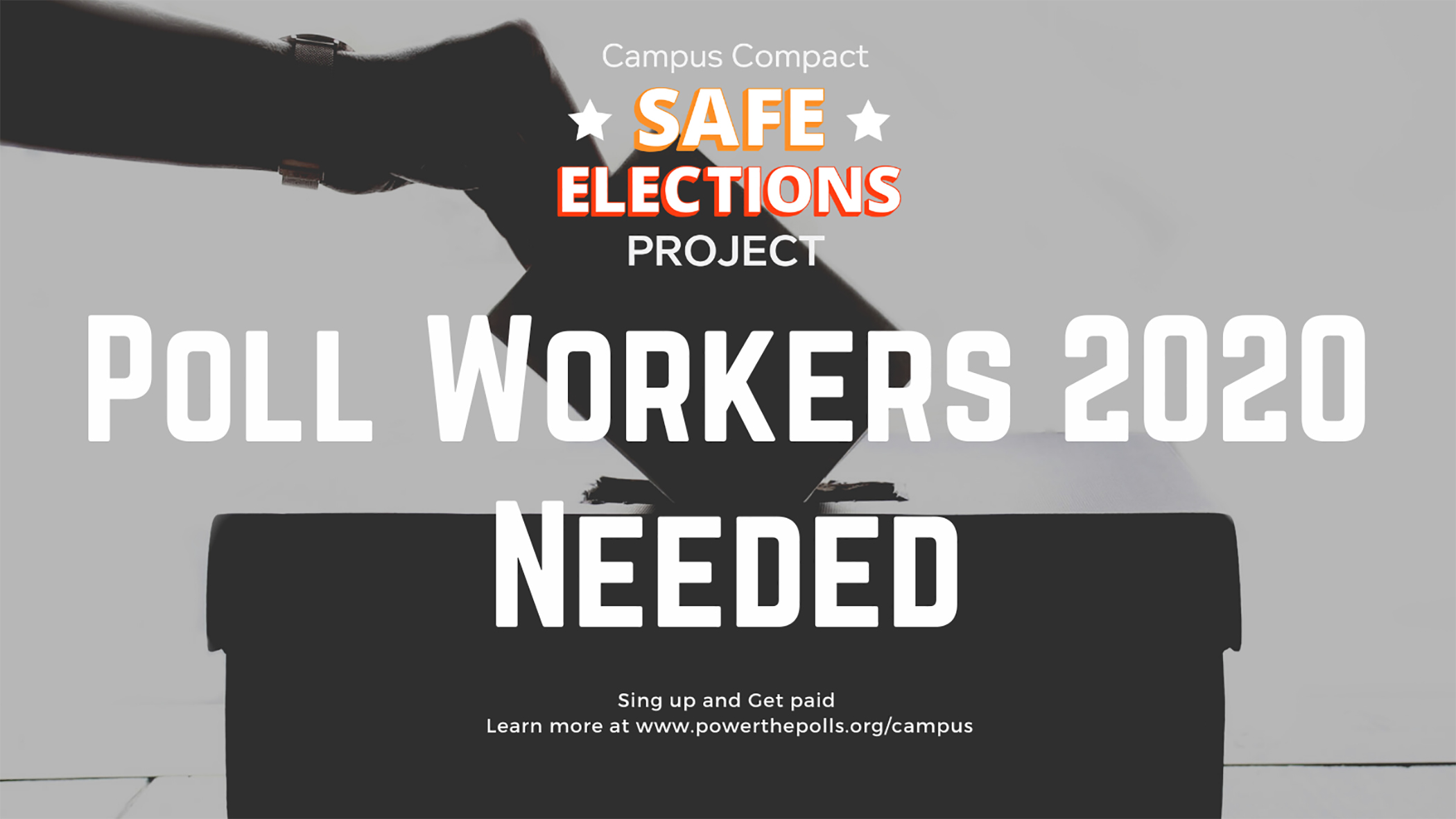Students Help Recruit Poll Workers to Advance Fair Elections in November
Students Help Recruit Poll Workers to Advance Fair Elections in November
In most election years, more than half of the men and women who assist voters at polling places are over the age of 60. But with the arrival of the COVID-19 pandemic, many of these workers are choosing not to work at the polls this year because they are among the most vulnerable to the worst effects of the virus.

That’s why Gabryelle Kolk ’22 and some of her fellow Vassar students have joined a nationwide initiative to recruit younger people for these vital jobs. Kolk and her Vassar colleagues won’t be able to apply for the jobs themselves because they will be confined to the campus due to the pandemic. But they are working with two nationwide student organizations, Power the Polls and Campus Compact, to find younger workers for these jobs under an initiative called the Safe Elections Project.
Kolk said the effect of the pandemic on those serving the needs of voters and counting votes has already been evident in recent elections. “In the Georgia primaries, worker shortages led to understaffed and reduced polling locations, causing record wait-times for polling booths that forced many individuals to choose between standing in line for hours during a pandemic or being disenfranchised,” she said. “We’ve seen this pattern continue in other states as well.”
Kolk said the Safe Elections Project has set a goal, of recruiting up to 6,000 new poll workers across the country. Kolk said she and her fellow students at Vassar are working with a local social action organization, Nobody Leaves Mid-Hudson, and local school districts to recruit poll workers in the Poughkeepsie area. They are also reaching out to local businesses and asking the owners to post flyers in their establishments, advising local residents how they can become poll workers. Those who wish to apply for such jobs must undergo training, but local residents will be able to become qualified by completing an hour-long, online course.

Kolk said many of the most crowded and understaffed polling places have been in communities where there are many people of color. “They are the ones who have been affected disproportionately,” she said. “We want to ensure that those who are most often disenfranchised are able to vote.”